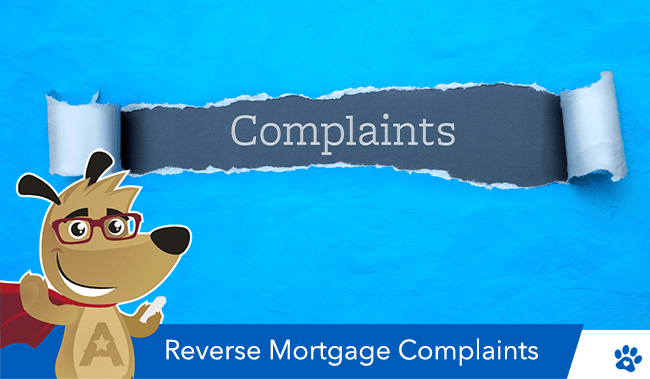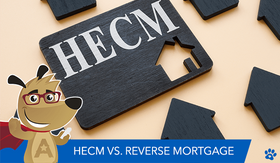4 Most Common Reverse Mortgage Complaints in 2026
Updated January 18, 2026

Reverse mortgages, despite their potential benefits, often face criticism. Since 2019, less than 1% of eligible homeowners have taken the reverse mortgage option.
That's why we delve into the most common complaints surrounding reverse mortgages below. By addressing these issues, we hope to provide a clearer understanding of this financial option and dispel common misconceptions. This includes:
- Reverse mortgages come with high fees
- Reverse mortgages "eat up" your home equity
- My heirs have to pay off the excessive loan balance
- Reverse mortgages can lead to foreclosure due to growing loan balances
Meet the expert
Michael G. Branson, CEO of All Reverse Mortgage, Inc. and moderator of ARLO™, has 45 years of experience in the mortgage banking industry. He has devoted the past 20 years to reverse mortgages exclusively.
1. Excessive fees
Myth: Reverse mortgages come with high fees
Fact: While it's true that reverse mortgages used to have excessive fees, recent regulatory changes have made them more affordable. Today, fees for originating a reverse mortgage align with those of a regular mortgage.
Similarly, the interest rates on reverse mortgages are higher than those on traditional 30-year fixed-rate mortgages. But remember:
- The longer repayment period justifies the higher interest rate, as the lender waits longer for their payback.
- The increased interest rate isn't excessive and should be considered regarding the loan's benefits.
Still wary about reverse mortgage costs? Use our Reverse Mortgage Calculator to get a quote. You can see:
- Real-time interest rates
- Accurate cost estimates based on your location
- Side-by-side amortization schedules
2. Equity erosion
Myth: Reverse mortgages "eat up" your home equity
Fact: A reverse mortgage does reduce your home equity over time, but the benefits can outweigh this concern, including improved financial security and quality of life. It's essential to remember that the loan is structured so your heirs won't have to pay any amount over the property's sales price.
3. Burden on heirs
Myth: My heirs have to pay off the excessive loan balance
Fact: Again, the reverse mortgage is designed to protect your heirs. They don't have to cover any loan amount exceeding the property's value.
4. Foreclosure concerns
Myth: Reverse mortgages can lead to foreclosure due to growing loan balances
Fact: The loan balance itself doesn't trigger foreclosure. Foreclosure in a reverse mortgage happens only if the homeowner fails to pay real estate taxes or homeowners' insurance. This can be because of:
- Poor financial planning or some other reason preventing them from making payments.
- The homeowner vacates the property as a result of death or by simply moving to another location.
The mortgage will then become payable, and the property could be foreclosed upon if every effort to sell the property is not being made.
» Here's how you can default on a reverse mortgage
How do you mitigate common complaints about reverse mortgages?
Significant contributors to negative reverse mortgage sentiments are a lack of awareness and misunderstanding about how they work and the costs involved.
In the past, there was limited education available on this topic. Today, mandatory upfront counseling sessions for borrowers and sometimes even heirs help eliminate false ideas and ensure that individuals fully understand the program.
If not, you could overlook these potential reverse mortgage advantages:
- No mortgage payment
- Long-term care coverage
- Asset protection
- Stop foreclosure
- Remain in one's home
- Debt elimination
» Delve into these reverse mortgage pros and cons to get the full picture
Reversing misconceptions: A new perspective on reverse mortgages
Common complaints about reverse mortgages often stem from misconceptions and a lack of understanding. By addressing these concerns and providing accurate information, you can decide whether a reverse mortgage aligns with your financial goals and needs. It's essential to seek education, consult with knowledgeable lenders, and weigh the potential benefits against the perceived drawbacks when considering this financial option.
» Still feel like you're in the dark? Consult our complete guide to understanding reverse mortgages





